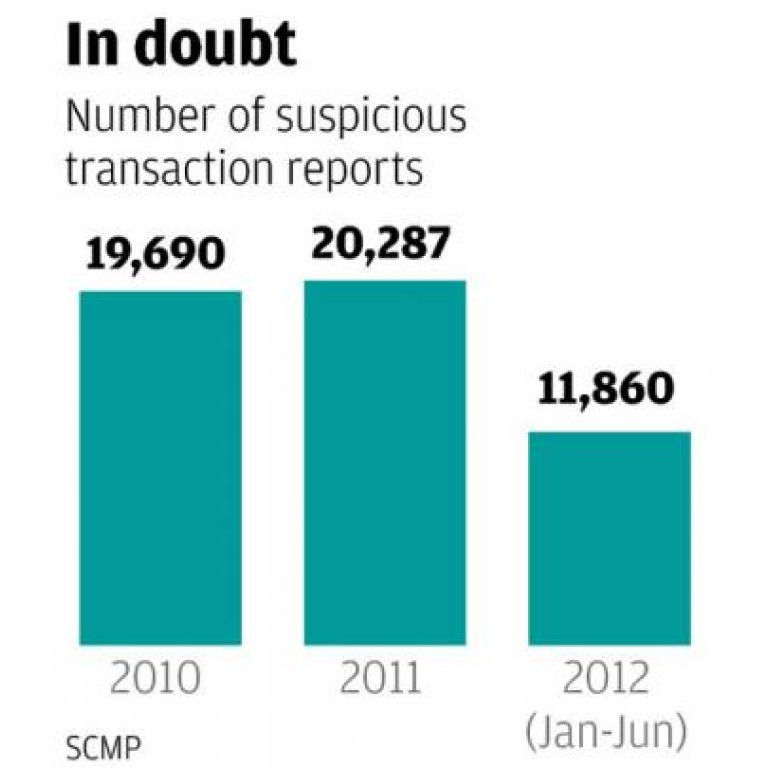
Suspected money-laundering cases in HK surge 29pc
Anti-money-laundering law sparks rise in cases reported by banks and financial institutions
The number of suspicious financial transactions reported to law enforcers surged 29 per cent in the first half of the year, following the enactment of an anti-money-laundering law in April.
Police said there had been an upward trend of proceeds of overseas fraud or deception being remitted into bank accounts in Hong Kong and eventually transferred to third parties or cashed out.
"Stooge and non-resident bank accounts are usually involved," a spokesman said.
A lawmaker warned that enforcers risked being overwhelmed by the number of cases coming to light.
The Police and Customs' Joint Financial Intelligence Unit received 11,860 reports from banks and other financial institutions from January to June, up 29 per cent from 9,224 for the same period last year and more than half of the total 20,287 reports received in all of 2011.
Police said that the surge resulted from greater awareness since the Anti-Money Laundering and Counter-Terrorist Financing Ordinance was enacted on April 1, making the reporting of such transactions a legal obligation.
In general, many of those involved in money laundering avoid bank-to-bank transactions, as they can be easily traced, preferring instead to use the laundered cash to buy assets such as properties, cars or other luxury items.
Democratic Party lawmaker James To Kun-sun said money laundering had existed in the city for a long time and the suspicious transactions had surfaced after the law took force. "Hong Kong is an international financial centre, which attracted money-laundering activities. Now the number of reportable transactions is too many for law enforcers to handle," he said.
In the past 2 ½ years, courts have ordered the confiscation of HK$1.7 billion in crime proceeds - including cash involved in money laundering - with most of it going into the government's treasury.
There has also been a big increase in the number and value of serious commercial fraud cases, from 10 to 27 cases year-on-year in the first half involving HK$2.2 billion, up HK$2 billion.
The government Fight Crime Committee attributed this to four big cases adding up to HK$1.7 billion - of which three involved laundering of a total of HK$1.6 billion by listed companies.
The ordinance states that money exchangers should register for licences with the customs before May this year. It also stipulates that financial institutions should carry out customer due diligence checks for any transactions more than HK$120,000.
The maximum penalty of contravening the law is HK$1 million and seven years' jail.
Earlier this year, HSBC chief executive Stuart Gulliver apologised for the bank's lax controls after US$ 7 billion in drug money was found to have been laundered out of Mexico.
The bank had to set aside US$2 billion to cover the cost of US investigations and compensate affected UK customers.
